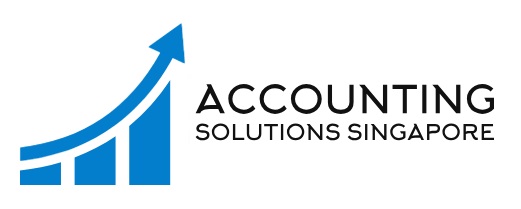
Exemptions for small companies in Singapore
Today, in an increasingly fast-paced world, it is critical that small businesses work together to ensure value and security meet individual and mutual objectives.
However, it is challenging to maintain smooth operations when each associated organisation operates under its internal systems and philosophies. Therefore, audits are of utmost importance.
Do you know that company in Singapore has the responsibility of having their financial statements and accounts reviewed by an external auditor at least once a year?
Therefore, the auditors can assess the organisation’s financial records objectively, thereby providing confidence for the company’s investors.
Even so, there are instances in which an organisation may be excluded from auditing. This is especially true for small businesses.
Is accounting a time-consuming task for you? Thanks to our skilled and reliable accountants, we are in a position to handle this on your behalf.
We can review the figures and help you file your annual reports on time for clients exempt from the annual statutory audit. This is an ideal solution for the busy entrepreneur.
To begin with, what is an audit exemption? Is it beneficial to you?
Introduction to the concept of audit exemptions for small companies on 1 July 2015
As of the change in the law on 1 July 2015, the audit exemption applies to the financial years starting on or after this date.
Criteria for qualification – definition of a small company
Before 1 July 2015, private companies with revenue of less than SGD 5 million per year were not required to have their accounts audited.
A new small business concept will replace this approach to determine whether or not an audit will be performed as part of statutory requirements.
It should be noted that a company does not have to be an exempt private corporation to be exempt from audit.
Companies qualify as small businesses if:
(a) the company was a private company during the financial year in question; and
(b) the company meets at least two of the following criteria for the past two financial years:
1. Total annual revenue must be SGD 10 million or less;
2. Total assets must be SGD 10 million or less;
3. Employees must be 50 or less.
Criteria for qualification – definition of a small group
An example for a company that belongs to a group would be:
1. The company must meet the criteria for eligibility as a small company; and
2. The entire group must meet the criteria as a “small group”.
to be eligible for the audit exemption.
To qualify for “small group” status, a business must satisfy at least two of the three quantitative criteria on a consolidated basis within the past two years.
When a company qualifies as a “small company”, it remains as such until it is disqualified. Small companies are disqualified if:
(a) During a financial year, the company ceases to be a private company; or
(b) the company did not meet two of the three quantitative criteria for the immediate past two consecutive financial years.
Groups classified as small groups remain so for subsequent financial years until they fail to meet at least two of the three quantitative criteria for the two most recent financial years.
In Singapore, what is a private limited company?
There are two private companies, private companies limited by shares (PCLS) and exempt private companies (EPC).
(a) EPC has a maximum of 20 shareholders and no corporate shareholders.
(b) PCLS has a maximum number of 50 shareholders.
Comparatively to public corporations, these private limited companies cannot sell their shares to the general public. Nonetheless, they may be able to issue additional shares or stocks to current stockholders.
Do speak with our Company incorporation team for more information on Singapore private limited company.
An example to illustrate the audit exemption
We would like to illustrate this with an example of a fictional Singapore company. In the example, a bsiness owner incorporated Abundance Pte Ltd as a private limited company on 1 January 2015.
At 31 December 2015, Abundance Pte Ltd had annual revenue of SGD 5 million, 30 full-time employees, and total assets of SGD 3 million.
In the next financial year 2016, Abundance Pte Ltd reported annual revenue of SGD 6.5 million, employed 45 full-time employees, and a total asset value of SGD 3.5 million. The company shares were not publicly traded.
Using the above guidelines, Abundance Pte Ltd is exempt from annual statutory audit:
- During the past two financial years, the company met the criteria for a small company for the 2015 and 2016 financial years.
- For each of the financial years, the company met the definition of a small company for 2015 and 2016.
If your company meets the audit exempt criteria, do you still prepare and file your accounts?
All Singapore companies must keep proper bookkeeping records regardless whether the company is exempt from an audit.
You must prepare unaudited financial statements, file Annual Returns with ACRA, and Tax computation and Corporate Income Tax Return with IRAS.
We can assist you in handling annual audit or to determine audit exemptions of your Singapore companies
Are you concerned about an upcoming audit? With the help of our team of professional accountants, we assist to work with the audit team to conduct the annual audit in a timely and effective manner.
We can also assist you in determining any audit exemptions or concerns to resolve them and set you on a path of success for many years to come.
Contact our team via Contact Form. Our team will arrange a time to discuss the annual compilation services and related compliance services.
